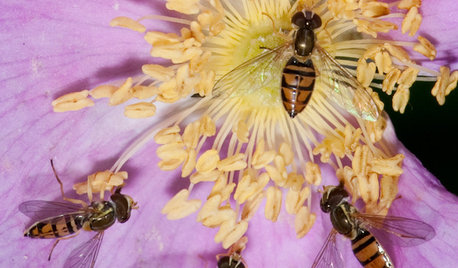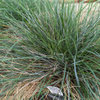Organically control white flies
santi_rodriguez
16 years ago
Related Stories

MOST POPULARHow to Get Rid of Those Pesky Summer Fruit Flies
Learn what fruit flies are, how to prevent them and how to get rid of them in your home
Full Story
GARDENING GUIDESThis Fly Is One of the Most Beneficial Insects Around
Meet the syrphid fly, a colorful pollinator that also beats chemicals for controlling aphids and other garden pests
Full Story
HEALTHY HOMEWhat to Know About Controlling Dust During Remodeling
You can't eliminate dust during construction, but there are ways to contain and remove as much of it as possible
Full Story
ORGANIZINGOrganizing Secrets: It’s the Little Things
Get these 8 small areas under control for a major boost in overall tidiness at home
Full Story
DECORATING GUIDESThe Enduring Appeal of the Egg Basket
Hardworking wire baskets are flying the coop for a life inside, appearing as storage, organizers and decor
Full Story
ORGANIZINGYour Total Home Organizing and Decluttering Guide
Take it slow or be a speed demon — this room-by-room approach to organizing and storage will get your home in shape no matter how you roll
Full Story
BATHROOM DESIGN7-Day Plan: Get a Spotless, Beautifully Organized Bathroom
We’ve broken down cleaning and decluttering the bath into daily, manageable tasks
Full Story
DECORATING GUIDESHow to Work With a Professional Organizer
An organizing pro can help you get your house together. Here's how to choose the right one and gain your own clutter-clearing skills
Full Story
ORGANIZING7-Day Plan: Get a Spotless, Beautifully Organized Home Office
Start your workday with a smile in a home office that’s neat, clean and special to you
Full Story









rhizo_1 (North AL) zone 7
Kimmsr
Related Professionals
Surprise Landscape Architects & Landscape Designers · Essex Landscape Architects & Landscape Designers · Manorville Landscape Architects & Landscape Designers · Cambridge Landscape Contractors · Cliffside Park Landscape Contractors · College Park Landscape Contractors · Melrose Park Landscape Contractors · New Cassel Landscape Contractors · Norwalk Landscape Contractors · Oklahoma City Landscape Contractors · San Pedro Landscape Contractors · Selden Landscape Contractors · Sun City Center Landscape Contractors · Twin Falls Landscape Contractors · Silver Firs Landscape ContractorsUser
calliope
schmoo
calliope
heptacodium
Kimmsr
schmoo
schmoo
calliope